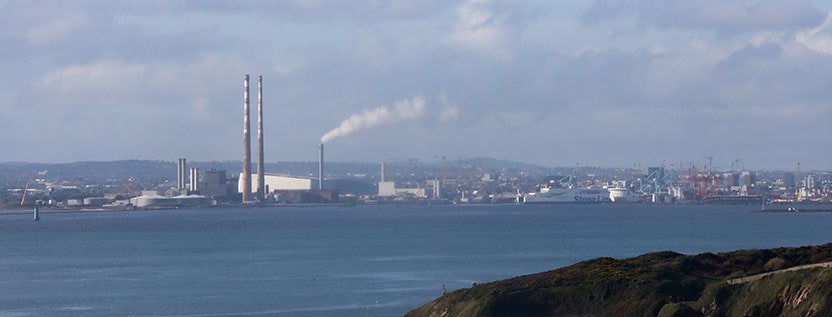
Ireland faces ‘staggering’ climate costs – report
A joint report from the Irish Fiscal Advisory Council (IFAC) and the Climate Change Advisory Council has warned that Ireland must “act now” to avoid the massive costs of missing legally binding climate targets.
The joint report estimates that Ireland could face what it describes as “staggering” costs of between €8 billion and €26 billion.
It adds, however, that if the Government follows through on its Climate Action Plan, the potential costs could be cut by more than half – to between €3 billion and €12 billion.
“However, the plan is not being delivered at the scale or the speed required,” the bodies say.
EU legislation
The report’s estimates are based on an analysis of three key pieces of EU legislation:
- The Effort Sharing Regulation sets binding national targets for reducing greenhouse-gas emissions, covering Ireland’s agreed commitments to reduce emissions up to 2030 from domestic transport, buildings, small industry, waste, and agriculture,
- The LULUCF Regulation sets binding national limits on net emissions from the land sector – including forests, wetlands, and agricultural land, and
- The Renewable Energy Directive sets binding national targets for renewable-energy share in total energy, heating and cooling, and transport.
The two bodies say that the Effort Sharing Regulation is the most important of the three.
“If Ireland emits more than allowed, the State will have to purchase the gap from overperforming countries – those that reduce their emissions more than required,” they state.
The report adds that Ireland will likely be able to offset some costs by using some “limited flexibilities” permitted by the legislation.
The two other pieces of legislation could pose “smaller yet still significant costs”, the report says.
Three key actions
The two bodies argue that three key actions that would cost less than half of the upper range of costs (€26 billion) could dramatically reduce the costs burden:
- Upgrading Ireland’s national energy grid (€7 billion),
- Reducing the cost of 700,000 new electric vehicles to under €15,000 and ramping up charging networks (€4 billion), and
- Supporting forestry and the rewetting of peatlands (€1 billion).
The report points out that these measures would cost just one-tenth of capital spending planned by the Government out to 2030.
Pace of change ‘not enough’
“Ireland can take actions now to offset potential costs down the line. It can do so in a way that doesn’t threaten the wider sustainability of the public finances,” said IFAC chair Seamus Coffey.
Marie Donnelly (chair of the Climate Change Advisory Council) said that, while Ireland had made some progress in reducing emissions, the pace of change was not enough to meet national and EU climate targets.
“It is better to make the investments into Irish households, communities, and businesses now, rather than paying significant compliance costs in the years ahead,” she stated.